'Jambo Cinema' celebrates '80s UK-Asian family life
- Published
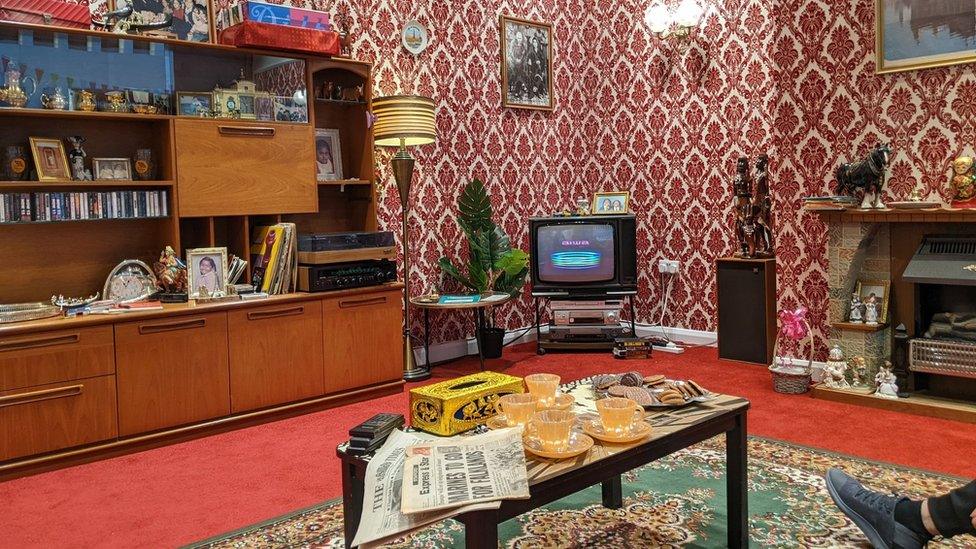
The living room in Jambo Cinema
Posters of Bros and Jason Donovan jostling for space alongside adverts for bhangra nights was typical on the walls of many 1980s British-Asian teenagers. Dawinder Bansal, of Wolverhampton, has recreated her childhood home for a nostalgic look back at life and the BBC went to see it.
Within seconds of entering the "living room" section of Jambo Cinema, the nostalgia is already flowing among those present.
"We had that same picture on the wall in our living room," says one woman, pointing to a large framed photograph of Amritsar's Golden Temple, one of Sikhism's holiest sites.
She is part of a small audience viewing Dawinder Bansal's Jambo Cinema, an immersive exhibition currently showing in Birmingham's Mailbox, as part of the Birmingham 2022 Festival.
Inspired by her childhood in Wolverhampton, it draws on memories of her late father's electrical shop, Bansal Electrical, which also rented VHS Bollywood films.
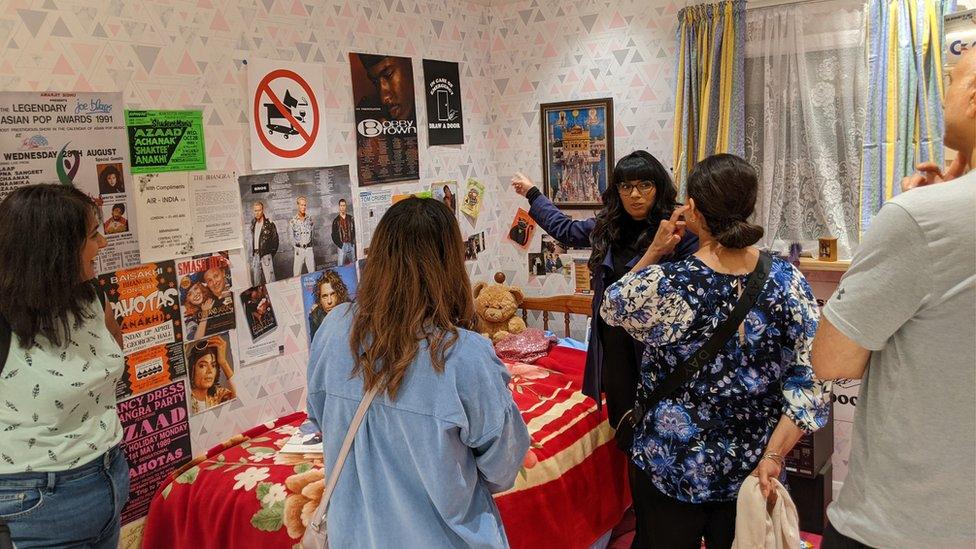
Dawinder shows viewers a recreation of her childhood bedroom
Visitors are first invited to sit in the living room section, a carefully curated representation of what she explains was the hub of the family and the key area for hospitality in the home.
Old family photos sit alongside memorabilia, ornaments and furniture typical in the households of families of south Asian descent during the 1980s.
A man present asks to look at one photograph of a Sikh football team Dawinder's brother was a member of and instantly recognises some familiar faces.
A television and VHS video recorder sit in the corner, which Dawinder explains family and friends would gather around to watch Hindi movies that would offer Indian immigrants including her parents a precious taste of home while adjusting to a hugely different culture.
Viewers of the exhibition are then shown a short film that details some of her personal recollections and experiences from which it emerged.
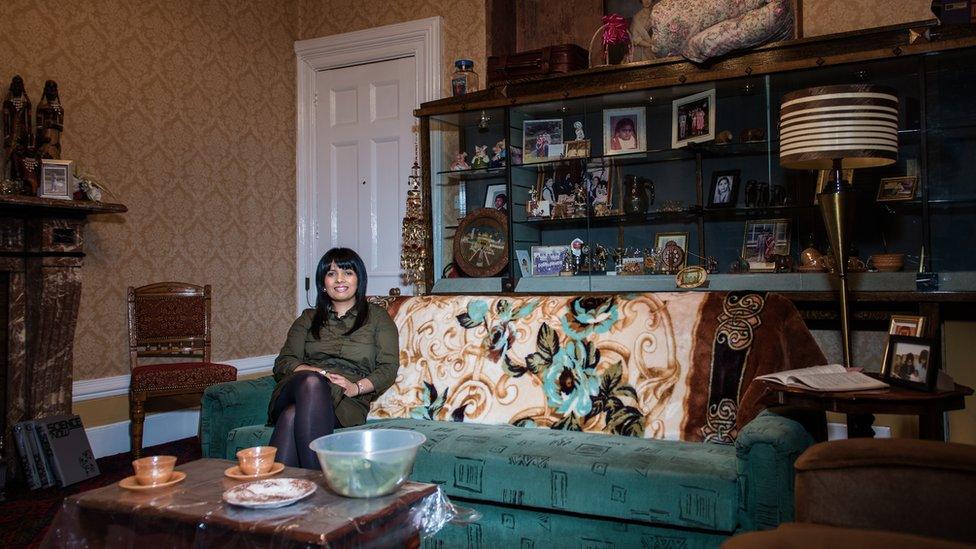
Dawinder Bansal's installation began life as a pop-up back in 2016 thanks to a few borrowed props and some items from the family home
Dawinder then leads a tour through other rooms that reflect her former family home.
The bedroom wall is covered with an assortment of pictures - featuring an array of posters from pop magazine Smash Hits including Bros and Michael Hutchence.
They feature alongside others advertising "daytimers"; daytime discos where teenagers of South Asian descent were able to enjoy the kind of nightlife experience that cultural traditions and sometimes racial abuse generally prevented them from being part of.
"It's about looking back with a sense of fondness, but also understanding where I've come from really and what that meant," she says.
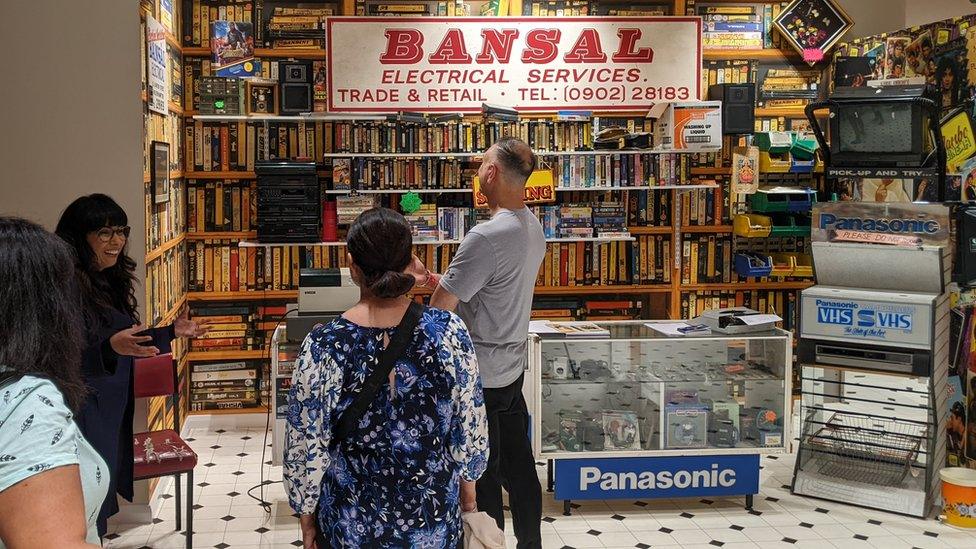
The video rental shop section of the exhibition, complete with the old sign
"The opportunities that my generation have been given as a result of the hard work and sacrifices of our parents; this is a celebration of that."
The final part of the installation, which began life as a pop-up piece in 2016, is a partial recreation of the kind of Bollywood video shop that her father ran.
Dawinder lost her father when she was just 11 and said creating the exhibition had also acted as a form of "psychotherapy" for her.
"I think it's been a way of addressing undiagnosed trauma from my father's death," she says.
"When I first set up the video store bit and looked at it, I just broke down in tears."
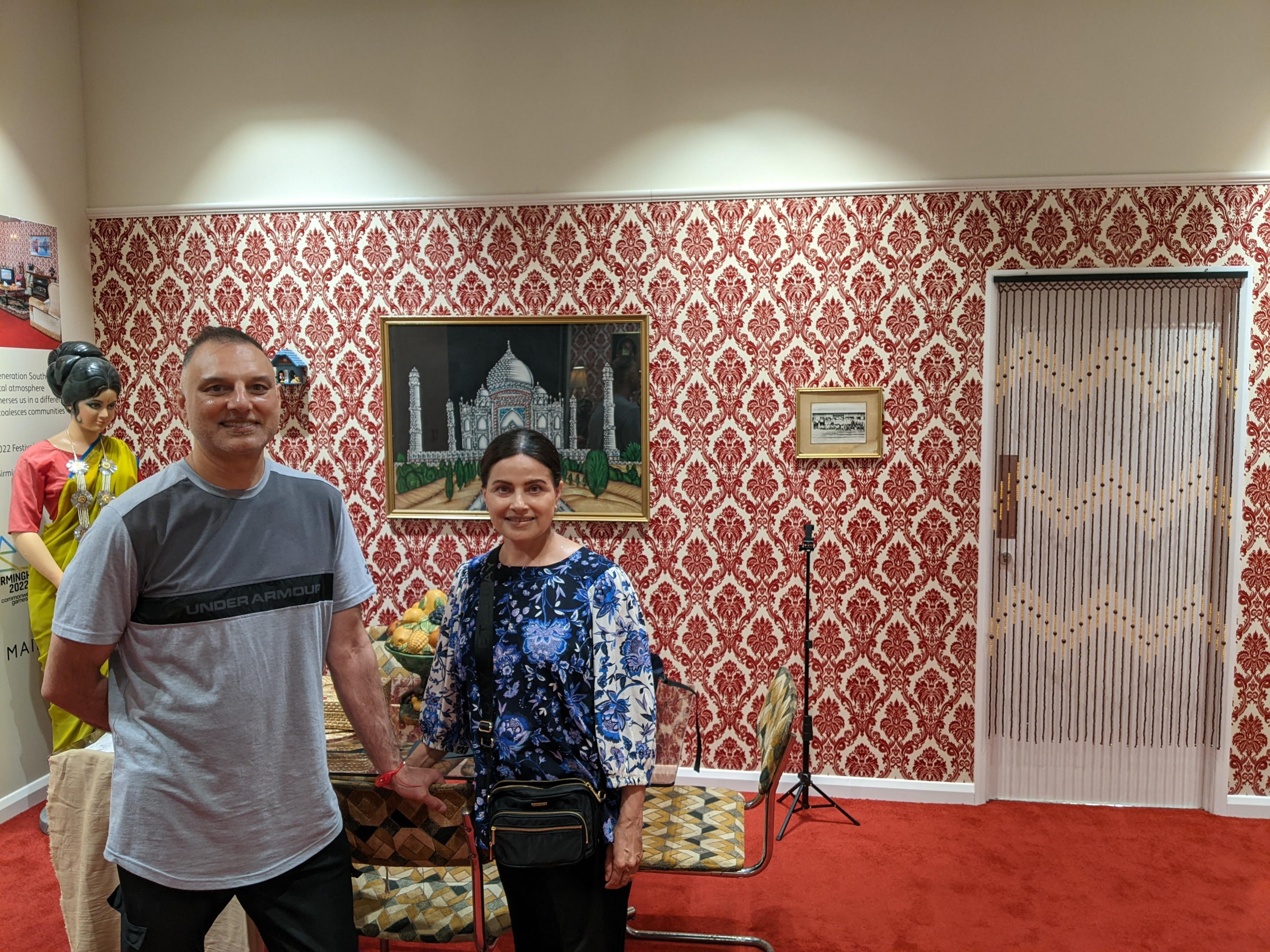
Jasbinder Kaur and her husband, Sukhvinder Singh
Jasbinder Kaur and her husband, Sukhvinder Singh, both in their 50s, say the exhibition was very poignant for them.
"It's bringing back so many memories," she says.
"It's so nice."
Jambo Cinema is currently showing at the Mailbox. Entry is free but advance booking is required. Visit dawinderbansal.com, external to book a slot.